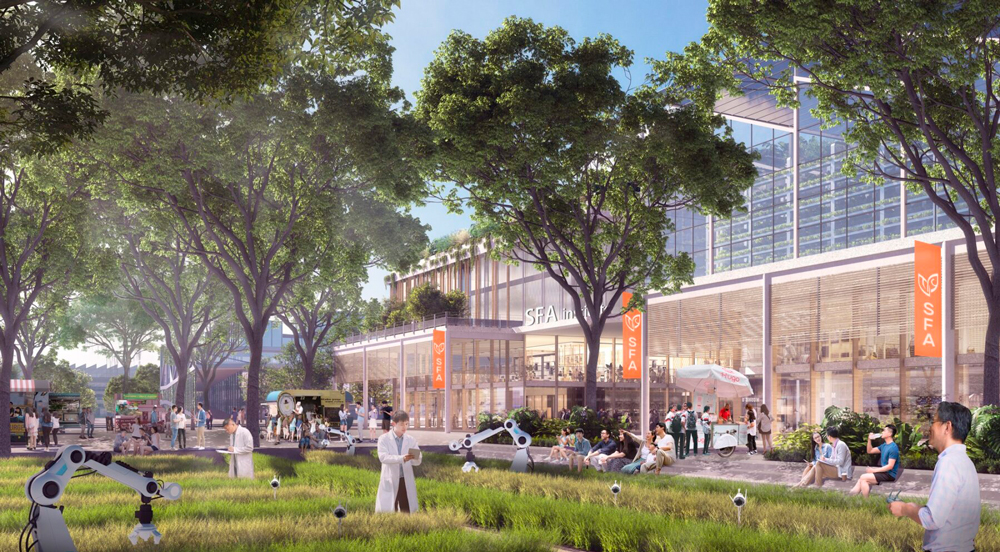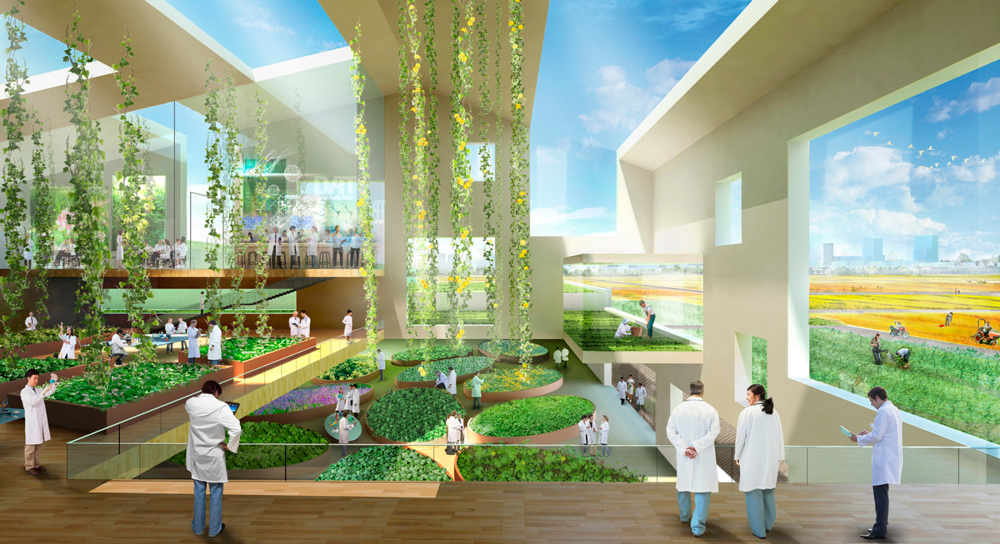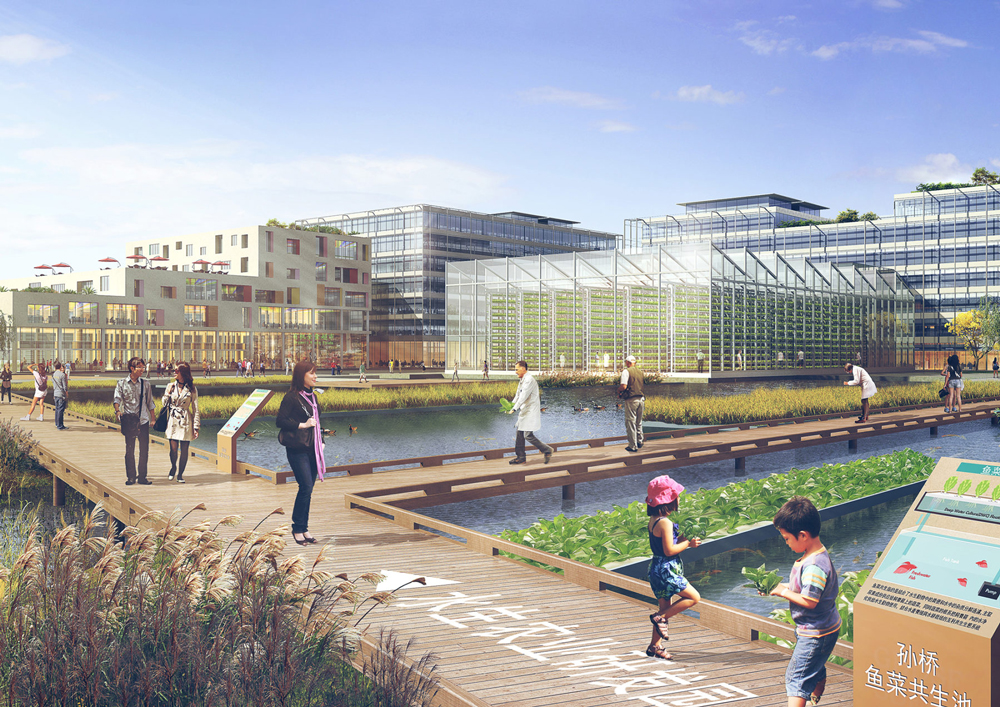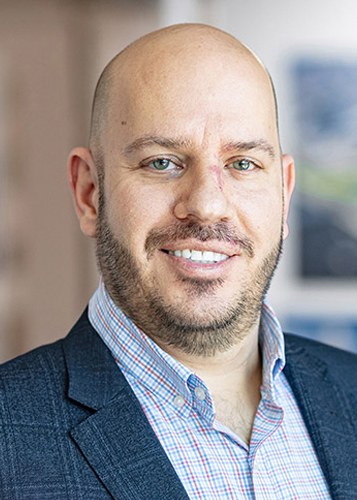Live Stream on: February 26, 2026 11AM PDT
Live Webinar: $25 Add to Cart
Select and earn CEUs from this live webinar. This may involve a quiz at the end of the webinar. You will need to attend the entire webinar.
Webinar Description:
Urban agriculture is no longer a niche movement—it is a vital strategy for climate resilience, food equity, and the reimagination of urban life. In this webinar, Sasaki Principal Michael Grove FASLA will explore how urban agriculture can be harnessed as a powerful tool for reshaping cities at every scale. As one of the global design leaders advancing the integration of agriculture into the built environment, Grove brings a uniquely interdisciplinary perspective rooted in design excellence, ecological systems, and community impact. 
Drawing from landmark projects around the world, Grove will share case studies that demonstrate how agriculture can be embedded into the DNA of city-making. Project spotlights will include the award- winning Sunqiao Urban Agricultural District in Shanghai, where rooftop farms, vertical greenhouses, and aquaponics systems support a bold vision for agricultural innovation in a high-density context. Grove will also highlight the Lim Chu Kang Urban Agriculture District in Singapore—a cutting-edge food security initiative combining land use optimization with nature-based infrastructure, as well as the Songzhuang Arts and Agriculture District in Beijing, where creative economies and food systems are interwoven to revitalize peri-urban villages. In addition to these completed and ongoing projects, he will offer a first look at a transformative agroforestry initiative currently in development in San Lorenzo, Puerto Rico. Designed to regenerate degraded landscapes, support climate adaptation, and foster food sovereignty, this project embodies a new model of resilient infrastructure—one that repositions agriculture as a foundation for self- reliance across the island. 
The session will go beyond aesthetics to address the systems that underpin urban agriculture: policy frameworks, cultural narratives, climate adaptation strategies, and the changing role of public space. Grove will provide attendees with actionable insights for integrating productive landscapes into urban frameworks—whether through planning, design, or policy.

Learning Objectives:
1. Understand the Role of Urban Agriculture in Climate and Community Resilience
Participants will gain an understanding of how urban agriculture serves as a critical infrastructure strategy for enhancing climate adaptation, food security, and social equity in diverse urban contexts.
2. Explore Integrated Design Approaches Through Global Case Studies
Through in-depth project examples from Shanghai, Singapore, Beijing, and Puerto Rico, attendees will learn how to integrate agriculture into the built environment using interdisciplinary frameworks that merge ecological function, public space design, and cultural programming.
3. Apply Actionable Strategies for Embedding Productive Landscapes into Urban Planning and Policy
Attendees will be equipped with practical insights on how to shape policies, plans, and design interventions that reposition agriculture as a driver of systemic urban changefrom zoning and land use to community engagement and public health.

Michael Grove
Michael Grove is a Principal at Sasaki, a global design firm with offices in Boston, Denver, New York, Los Angeles, and Shanghai. An accomplished design leader, he is continually pushing the boundaries of landscape architecture, tackling 21st-century challenges such as habitat conservation, green infrastructure, urban agriculture, and human-centered design. Working across the globe, Michael brings nuance to the complexities of the public realm, crafting visionary yet pragmatic solutions that are redefining contemporary cities. His systems-thinking approach weaves together diverse perspectives, balancing ecological, social, and economic priorities to create more livable, equitable, and resilient places.
With deep experience leading large, multidisciplinary teams, Michael works at every scale—from regional planning to urban districts and waterfronts—guiding projects from bold conceptual visions to impactful built realities. He fosters a culture of exploration, iteration, and innovation, ensuring that each project holistically responds to financial, cultural, and environmental contexts.
A graduate of Cornell University, Michael is a Fellow of the American Society of Landscape Architects, a member of the Urban Land Institute’s Placemaking Council, and a past President of the Landscape Architecture Foundation. His work has earned numerous awards, and he is a passionate teacher and mentor, sharing his insights at conferences and universities around the world.

